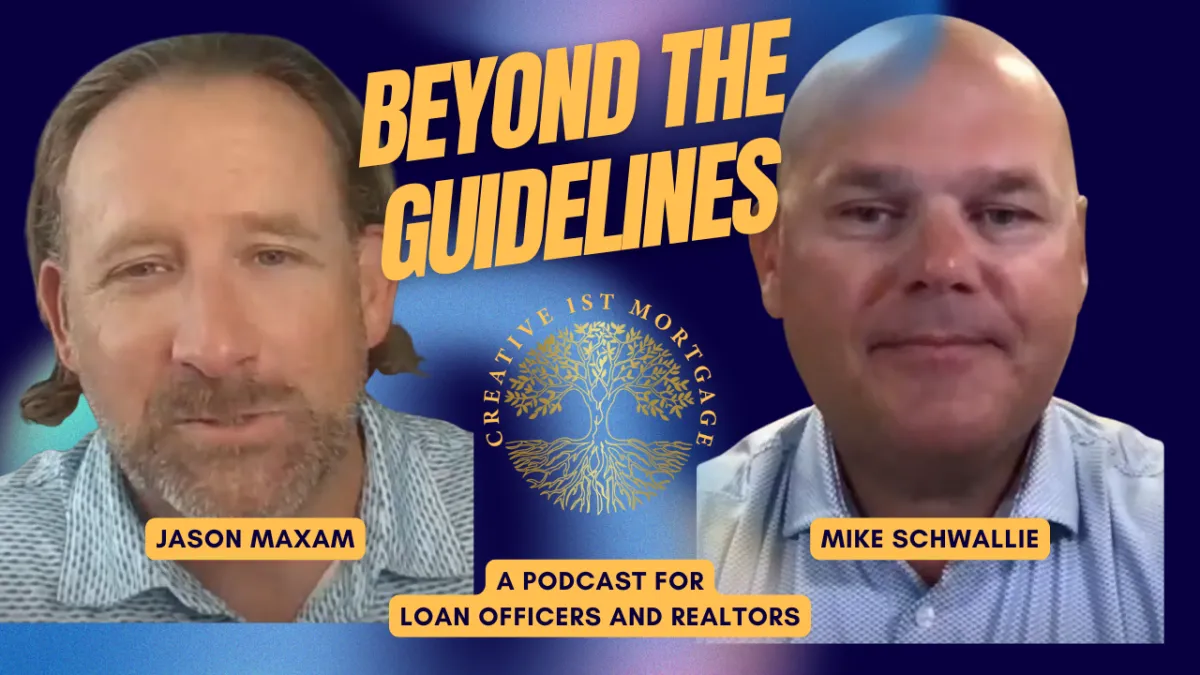
Beyond the Guidelines: How Infinite Banking Helps Real Estate Investors Build Generational Wealth
Beyond the Guidelines: How Infinite Banking Helps Real Estate Investors Build Generational Wealth
Summary
A deep-dive with wealth manager Mike Schwallie on how the Infinite Banking Concept (IBC) lets investors use specially designed whole life policies for liquidity, tax advantages, and uninterrupted compounding—plus real examples for down payments, flips, and syndications.
Reading time: ~10–12 minutes
Table of contents
What is the Infinite Banking Concept?
Why real estate investors love IBC
Tax advantages, asset protection & compounding
A real example: buying a condo in days (no bank needed)
Risks, costs, and how to start smart
Is IBC right for you?
FAQs
Book giveaway + free consult
1) What is the Infinite Banking Concept?
The Infinite Banking Concept (IBC) flips traditional banking on its head. Instead of parking cash in a bank that pays little interest, you store capital in a specially designed whole life insurance policy (through a mutual carrier) that’s built for high early cash value, not just a death benefit.
How it works at a glance:
You fund the policy; cash value grows at a competitive, tax-advantaged rate.
You can borrow against the cash value in about 48 hours—no credit check, no income docs, no bank approval.
Your principal keeps compounding even while you’re using the money elsewhere.
“It’s not about the product; it’s about the process—the function of banking in your own life.” — Mike Schwallie
2) Why real estate investors love IBC
Real estate is a leverage game. Every project needs capital—for down payments, renovations, BRRRR cycles, or syndication buy-ins. With IBC, you don’t make an or decision (leave cash in savings or deploy it). You make an and decision:
Keep your dollars compounding inside the policy and
Borrow against them to fund deals.
Result: your money can work in two places at once.
Use cases we covered on the show
Down payments and rehab budgets for rentals or flips
Short-notice opportunities when sellers want speed
Syndication minimums without interrupting compounding
Business purchases and equipment (for entrepreneurs)
Famous examples: Walt Disney (Disneyland), Ray Kroc (McDonald’s), J.C. Penney used policy loans to stabilize or grow when banks wouldn’t.
3) Tax advantages, asset protection & compounding
Tax-advantaged growth: Properly structured, policy growth and access can be tax-free.
Creditor protection: In many states, cash value has strong protection compared to a bank account (check your state rules).
Uninterrupted compounding: The principal continues to grow even when you leverage it—this is the wealth multiplier.
4) Real example: buying a condo in days (no bank needed)
Mike borrowed against his policy, had funds in ~48 hours, and bought a condo quickly when a below-market opportunity surfaced. He placed a tenant and routed rent back to replenish the policy loan—while the full cash value kept compounding. Flexibility + speed without bank friction.
5) Risks, costs, and how to start smart
IBC isn’t a magic trick; it’s a disciplined system.
Upfront cost: In year 1, about 60–65% of your premium is liquid; the rest sets the long-term foundation.
Discipline: You control repayments. If you never repay, the loan is deducted from the death benefit later.
Patience: Years 1–5 are the capitalization phase. Momentum builds around years 6–10 as dividends and guaranteed growth compound.
How to start
Begin with an amount you can comfortably fund (many start at $5k–$10k/yr).
Avoid exceeding MEC limits (keep tax advantages). Your planner should design the policy for maximum cash value, minimum required death benefit.
Treat policy loans like business lines of credit: track uses, set a target repayment rhythm, and keep cash flowing.
6) Is IBC right for you?
Consider IBC if you’re a:
Real estate investor who values speed, control, and flexible capital
Business owner who wants a private “warehouse” for cash
Family building multigenerational wealth with protection plus liquidity
This isn’t a replacement for investing. It’s the cash hub that supports your investing.
7) FAQs
Is infinite banking only for the wealthy?
No. Many start small and scale. The design—not the size—makes it work.
How fast can I access funds?
Typically 24–48 hours from request to deposit once the policy is active.
Will taking a loan reduce my policy’s growth?
Your cash value continues compounding; your available credit decreases until you repay.
Is this risky?
Properly structured whole life has contractual guarantees. The real risk is poor design or lack of repayment discipline.
Can I use IBC for cars, tuition, or business expenses?
Yes. Many owners finance vehicles, education, and equipment by “becoming their own banker.”
